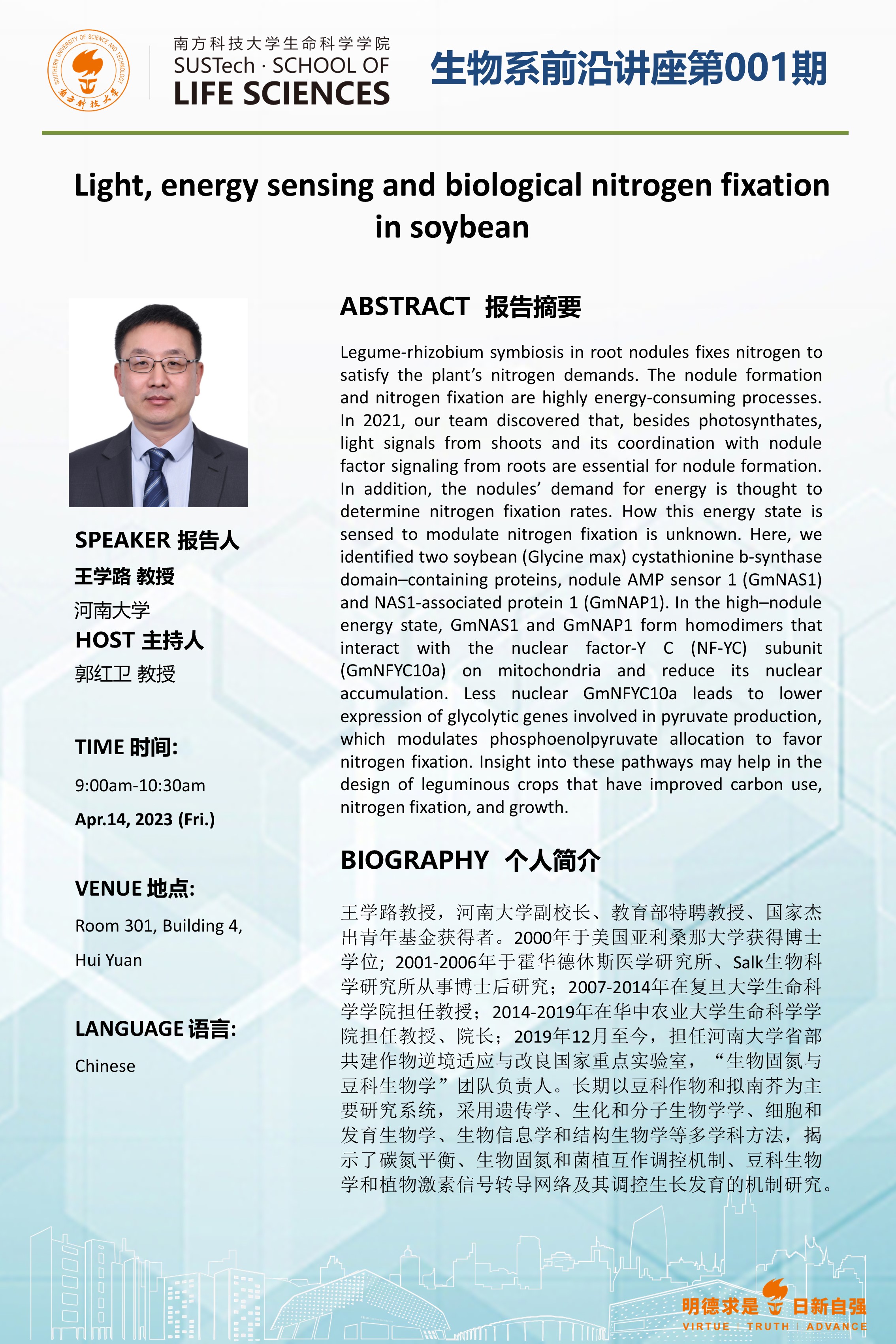
主讲人: 王学路 教授
时间: 2023年4月14日(周五)9:00-10:30
地点: 慧园4栋301室
题目: Light,energy sensing and biological nitrogen fixation in soybean
主讲:王学路 教授 (河南大学)
时间:2023年4月14日(周五)9:00-10:30
地点:慧园4栋301室
报告摘要:Legume-rhizobium symbiosis in root nodules fixes nitrogen to satisfy the plant’s nitrogen demands. The nodule formation and nitrogen fixation are highly energy-consuming processes. In 2021, our team discovered that, besides photosynthates, light signals from shoots and its coordination with nodule factor signaling from roots are essential for nodule formation. In addition, the nodules’ demand for energy is thought to determine nitrogen fixation rates. How this energy state is sensed to modulate nitrogen fixation is unknown. Here, we identified two soybean (Glycine max) cystathionine b-synthase domain–containing proteins, nodule AMP sensor 1 (GmNAS1) and NAS1-associated protein 1 (GmNAP1). In the high–nodule energy state, GmNAS1 and GmNAP1 form homodimers that interact with the nuclear factor-Y C (NF-YC) subunit (GmNFYC10a) on mitochondria and reduce its nuclear accumulation. Less nuclear GmNFYC10a leads to lower expression of glycolytic genes involved in pyruvate production, which modulates phosphoenolpyruvate allocation to favor nitrogen fixation. Insight into these pathways may help in the design of leguminous crops that have improved carbon use, nitrogen fixation, and growth.
个人简介: 王学路教授,河南大学副校长,教育部特聘教授,国家杰出青年基金获得者。2000年于美国亚利桑那大学获得博士学位; 2001-2006年霍华德休斯医学研究所,Salk生物科学研究所 博士后;2007-2014年复旦大学生命科学学院,教授;2014-2019年华中农业大学生命科学学院,教授,院长;2019年12月至今,河南大学省部共建作物逆境适应与改良国家重点实验室, “生物固氮与豆科生物学”团队负责人。长期以豆科作物和拟南芥为主要研究系统,采用遗传学、生化和分子生物学学、细胞和发育生物学、生物信息学和结构生物学等多学科方法,揭示了碳氮平衡、生物固氮和菌植互作调控机制、豆科生物学和植物激素信号转导网络及其调控生长发育的机制研究。